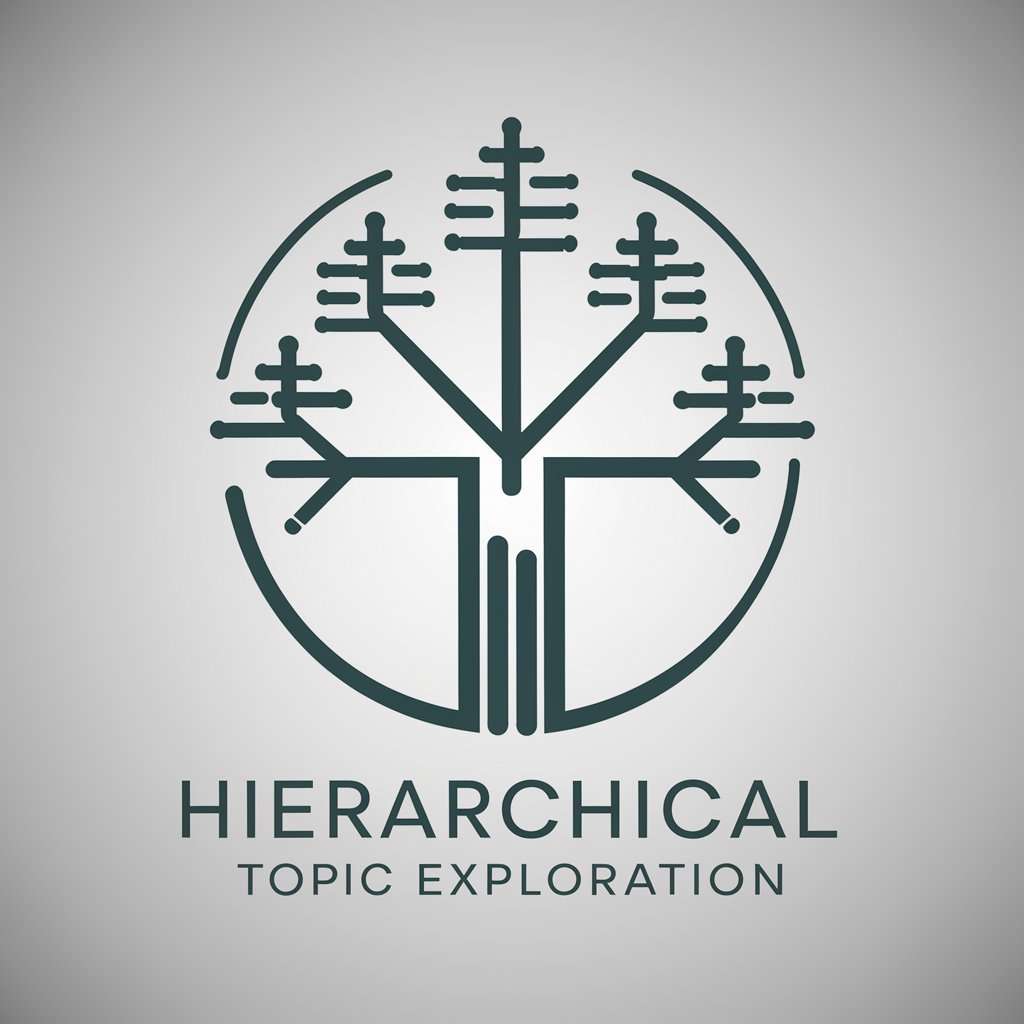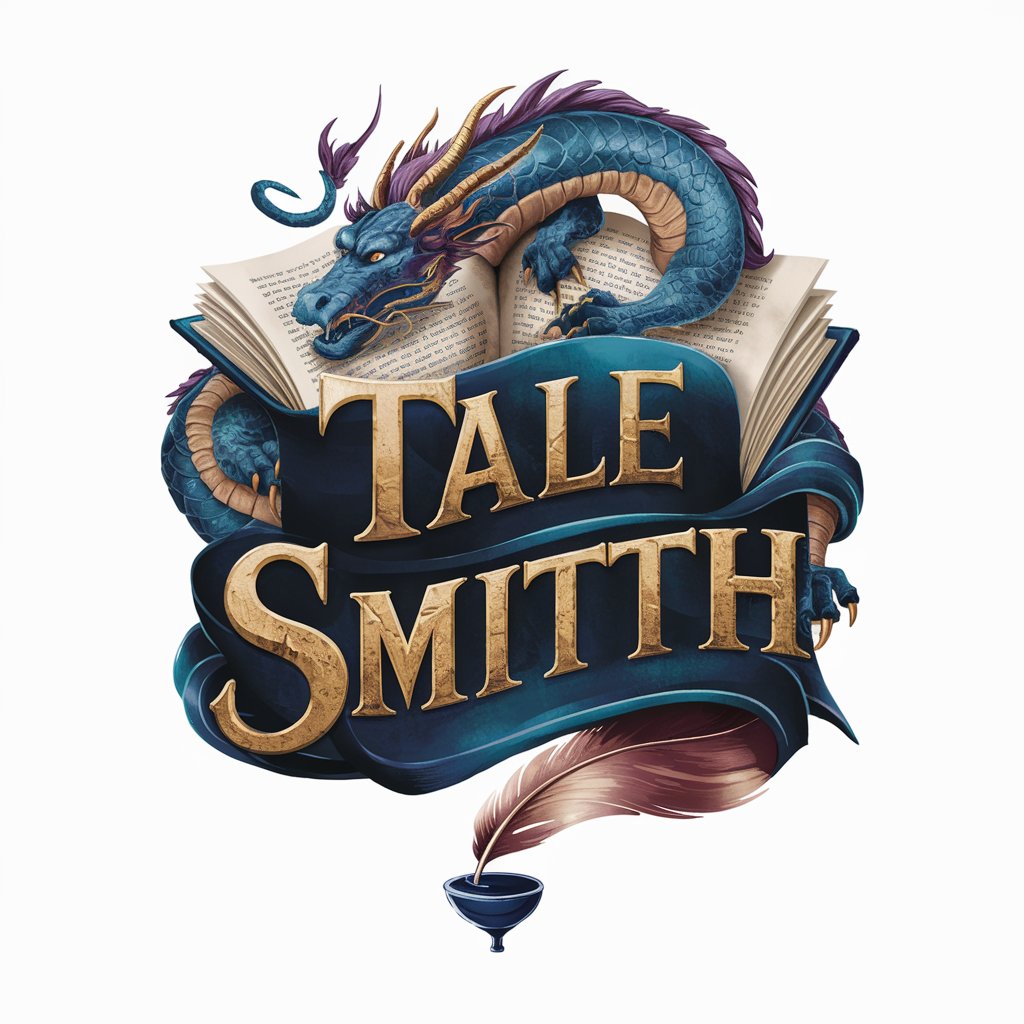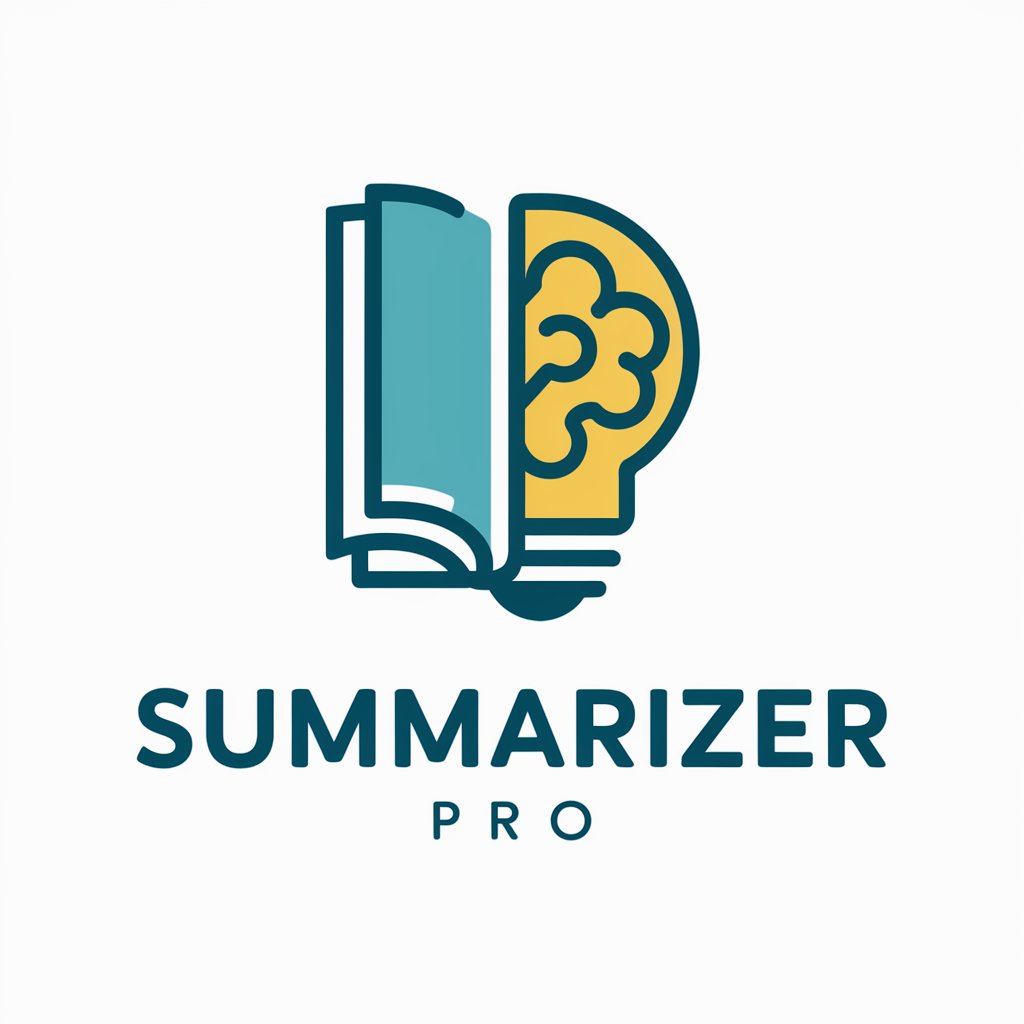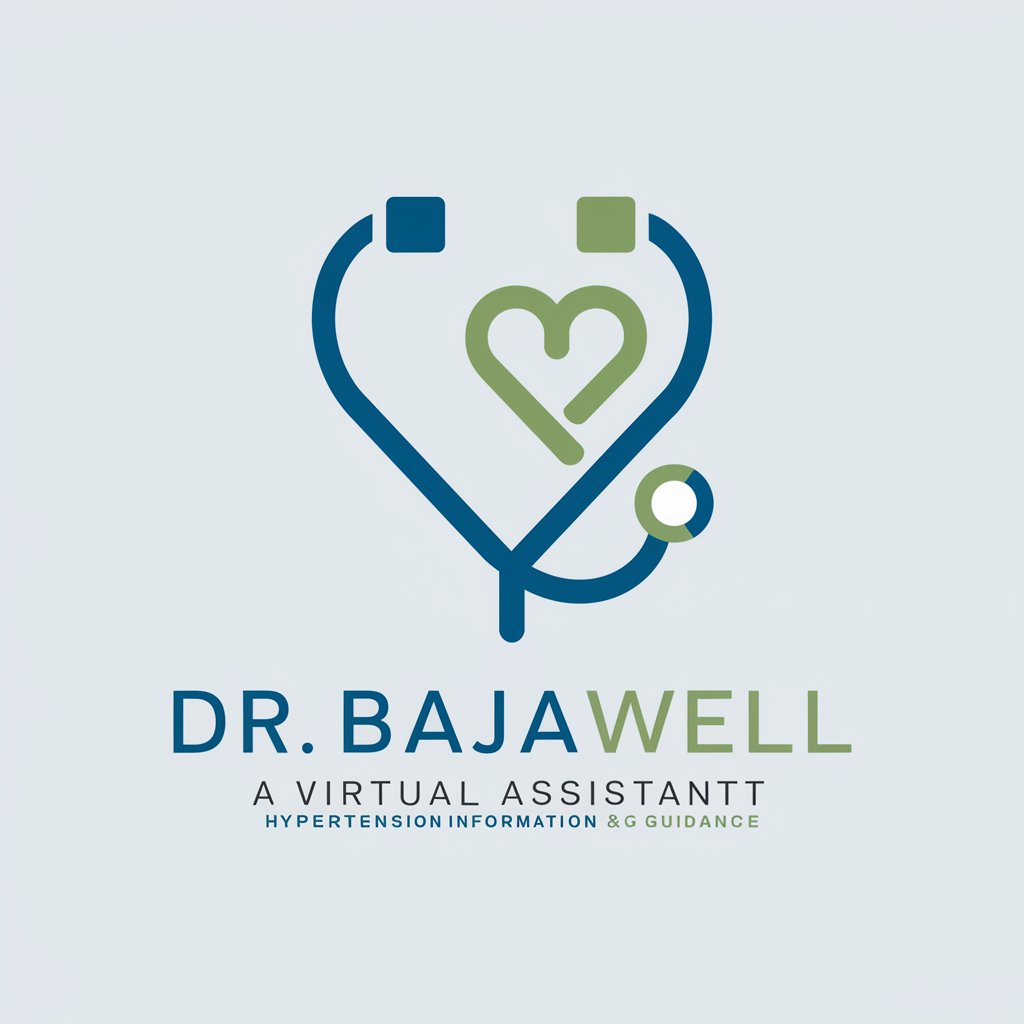Hierarchical Topic Mapping Expert - Hierarchical Analysis & Mapping

Welcome to Hierarchical Topic Exploration. Let's delve into your topic systematically.
Mapping Complex Topics, Simplified.
!start [topic]:
!drill [category]:
!return [category]:
!help:
Get Embed Code
Introduction to Hierarchical Topic Mapping Expert
The Hierarchical Topic Mapping Expert is designed to assist users in exploring and understanding complex topics by organizing them into a structured, hierarchical format. This approach facilitates a deeper comprehension of subjects by breaking them down into more manageable subtopics, allowing for an organized exploration. For example, when investigating the broad subject of 'Climate Change,' this system would create a hierarchical structure that includes divisions such as Causes, Effects, Mitigation Strategies, and Policy Responses. Each of these categories can then be further subdivided to explore specific issues, research findings, and debates within the broader context of climate change. The design purpose is to enable users to navigate through layers of information systematically, making the acquisition of knowledge more efficient and targeted. Powered by ChatGPT-4o。

Main Functions of Hierarchical Topic Mapping Expert
Hierarchical Structure Creation
Example
Creating a hierarchical structure for 'Artificial Intelligence' that includes branches for Machine Learning, Neural Networks, Applications, and Ethical Considerations.
Scenario
Used by a researcher to systematically explore various facets of AI, aiding in the organization of literature review sections for academic papers.
Iterative Refinement
Example
Refining the 'Machine Learning' category into subcategories such as Supervised Learning, Unsupervised Learning, and Reinforcement Learning.
Scenario
Utilized by educators to develop a curriculum that progressively deepens students' understanding of machine learning concepts.
User Interaction for Focused Refinement
Example
Allowing users to select 'Ethical Considerations' to drill down into specific issues like bias in AI, privacy concerns, and automation's impact on employment.
Scenario
Helpful for policy makers and ethicists to identify and address key concerns in the development and deployment of AI technologies.
Ideal Users of Hierarchical Topic Mapping Expert Services
Academic Researchers
Researchers can utilize the system to structure their literature review, identify gaps in current research, and systematically approach their subject of study.
Educators and Students
This group benefits from organized content for teaching and learning, enabling a step-by-step exploration of complex subjects and tailoring education to specific learning paths.
Content Creators and Journalists
For those who need to understand and communicate about complex topics, the system offers a way to organize information and present it clearly to their audience.
Policy Makers and Ethicists
This user group can drill down into specific ethical considerations and policy implications within broader topics, aiding in informed decision-making and policy development.

How to Use Hierarchical Topic Mapping Expert
1
Visit yeschat.ai for a complimentary trial, no sign-up or ChatGPT Plus required.
2
Choose a topic of interest to start the hierarchical mapping process.
3
Utilize the tool's interface to input your topic and initiate the analysis.
4
Explore the generated hierarchical map to understand the structure and relations within your topic.
5
Refine or expand your exploration by selecting subtopics or using keywords for deeper analysis.
Try other advanced and practical GPTs
Romantic Love Indicator
Decipher Love with AI-Powered Insights

Mind Map Mate
Mapping ideas with AI precision.

Tale Smith
Elevate Your D&D Campaign with AI

Road
Navigate smarter with AI-powered road insights

PWS | Course Architect
Revolutionizing Course Design with AI

Hazard Analyst
AI-driven Disaster Readiness

EUR-Lex Helper
Streamlining EU Legal Research with AI

Garage Sale GPT
Navigate sales smarter, with AI.

Summarizer Pro
AI-powered, personalized content summarization

Dr. BajaWell Hypertension
Empowering Healthier Lives with AI

Medical Devices
Empowering healthcare with AI technology

Medical Malpractice Watchdog
Navigating Medical Malpractice with AI Precision

FAQs on Hierarchical Topic Mapping Expert
What is Hierarchical Topic Mapping Expert?
It's an AI-powered tool designed to organize and analyze topics in a structured, hierarchical manner, facilitating in-depth understanding and research.
How does the tool handle complex topics?
It breaks down complex topics into manageable subtopics, using AI algorithms to map out the relationships and hierarchy within the subject matter.
Can Hierarchical Topic Mapping Expert help with academic research?
Absolutely, it's particularly useful for students and researchers to structure their literature review and identify key areas of focus.
Is prior knowledge required to use the tool effectively?
No, the tool is designed to be user-friendly for both experts and novices, providing intuitive guidance throughout the topic exploration process.
How does this tool differ from traditional search engines?
Unlike search engines that provide a list of links, this tool organizes information into a hierarchical framework, offering a structured overview and deeper insights into the topic.
